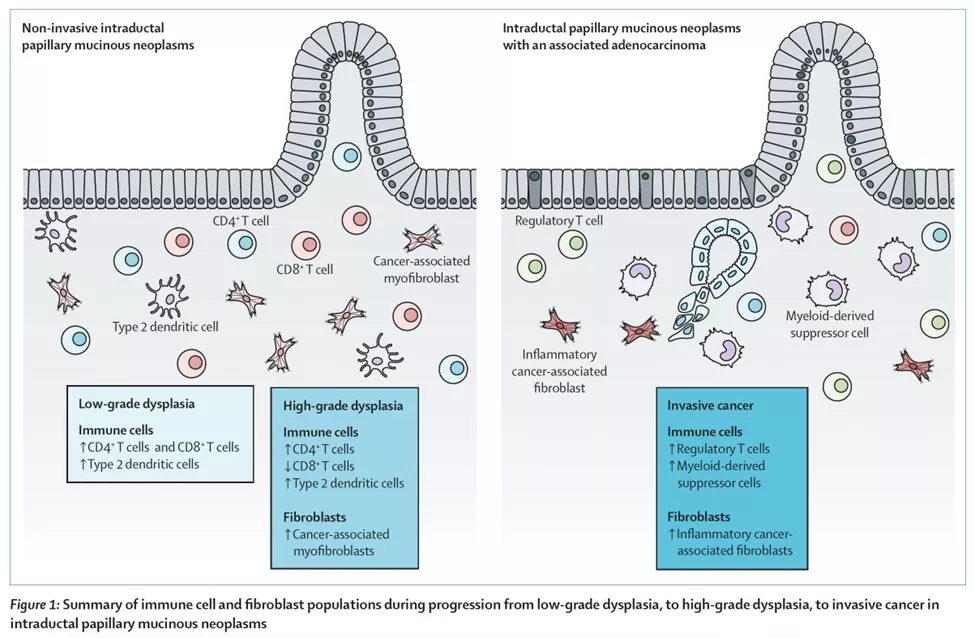Exploring the Tumor Immune Microenvironment of Pancreatic Cystic Neoplasms to Prevent Development of Pancreatic Cancer
Pancreatic cancer is one of the most aggressive and deadly cancers, projected to become the second leading cause of cancer-related deaths in the United States by 2030. A subset of these cancers develops from precancerous pancreatic cysts—specifically, Intraductal Papillary Mucinous Neoplasms (IPMNs), Intraductal Oncocytic Papillary Neoplasms (IOPNs), and Mucinous Cystic Neoplasms (MCNs). These cystic lesions are unique because they are the only precursors to pancreatic cancer that can be identified through imaging, offering a rare opportunity for early intervention.
Our research aims to understand how the tumor immune microenvironment (TIME) changes as these pancreatic cysts progress from benign to malignant states. By characterizing the immune cells and their interactions within the cysts, we hope to uncover key factors that contribute to or inhibit the progression to invasive cancer.
Our main objectives are:
- Characterize the Immune Microenvironment in Pancreatic Cystic Precursors
We will analyze the types and states of immune cells present in IPMNs, IOPNs, and MCNs at various stages of dysplasia—from low-grade to high-grade—and in cases where invasive cancer has developed. Utilizing advanced single-cell analysis techniques, we'll gain a comprehensive understanding of how the immune landscape evolves during cyst progression. - Evaluate the Spatial Organization of the Tumor Immune Microenvironment
We believe that the physical arrangement of immune cells in relation to tumor cells is crucial for their functional interactions. Using spatial transcriptomics, we'll map the location of immune cells within the cystic lesions to identify specific "immune niches" that may influence disease progression.
By uncovering the mechanisms through which the immune microenvironment contributes to the advancement of pancreatic cystic tumors, we aim to identify new therapeutic targets. Our ultimate goal is to develop treatments that can modify the immune environment to halt or even reverse the progression of these precancerous lesions, thereby preventing the development of pancreatic cancer.
Significance:
Early detection and intervention are critical in improving outcomes for pancreatic cancer, a disease where most patients currently present with advanced stages. By focusing on the immune factors that drive or inhibit the progression of precancerous cysts, our research strives to provide novel strategies for preventing pancreatic cancer before it develops. This could lead to significant advancements in patient care and survival rates for this devastating disease.

